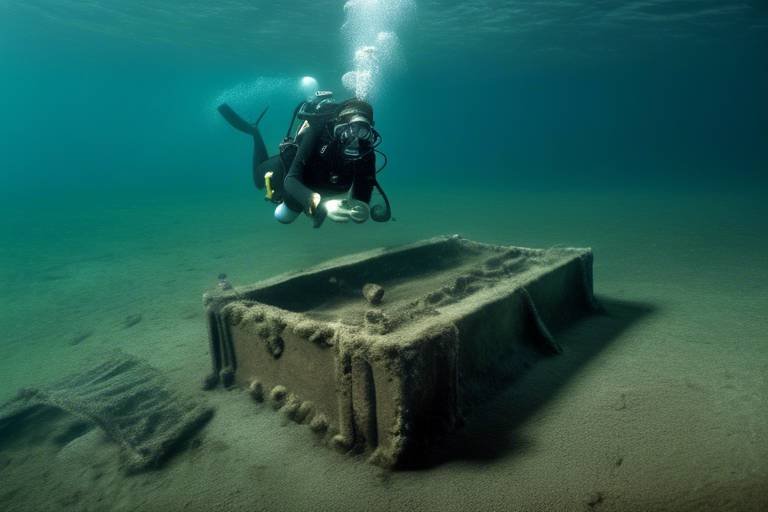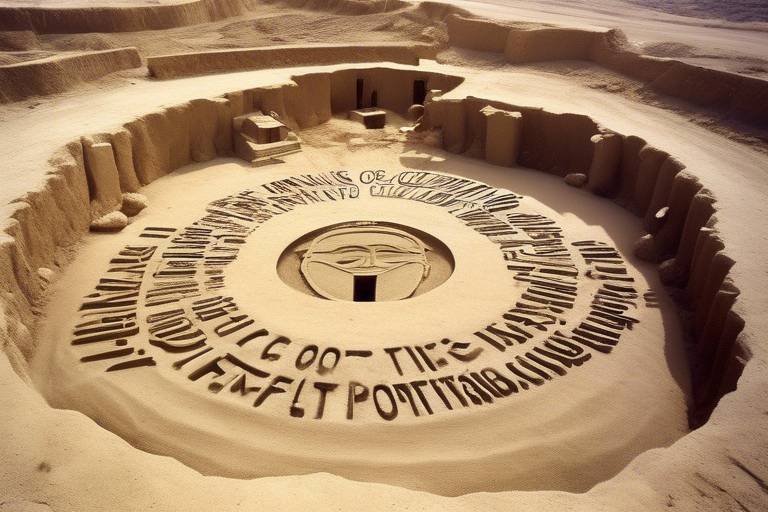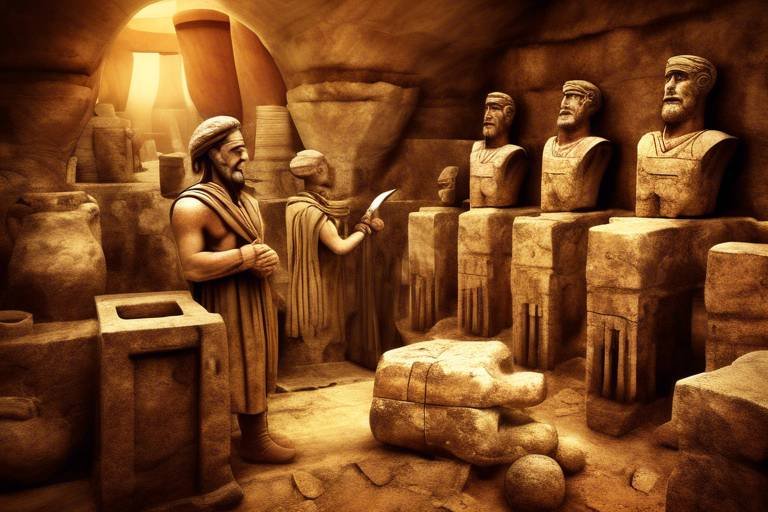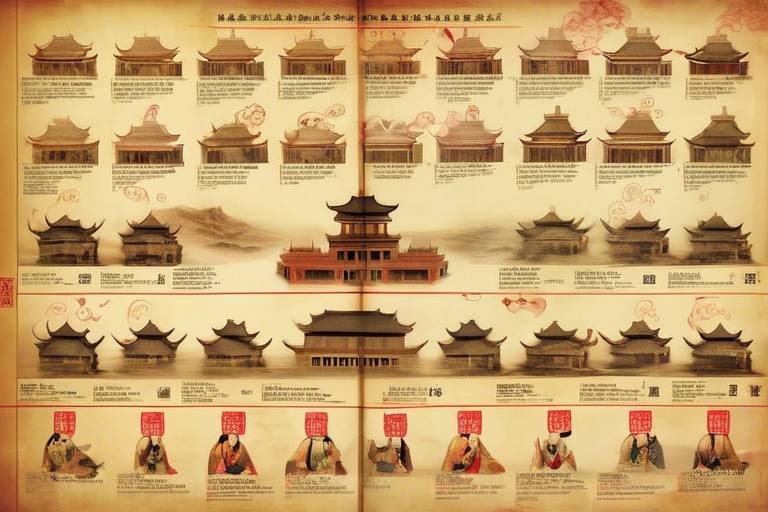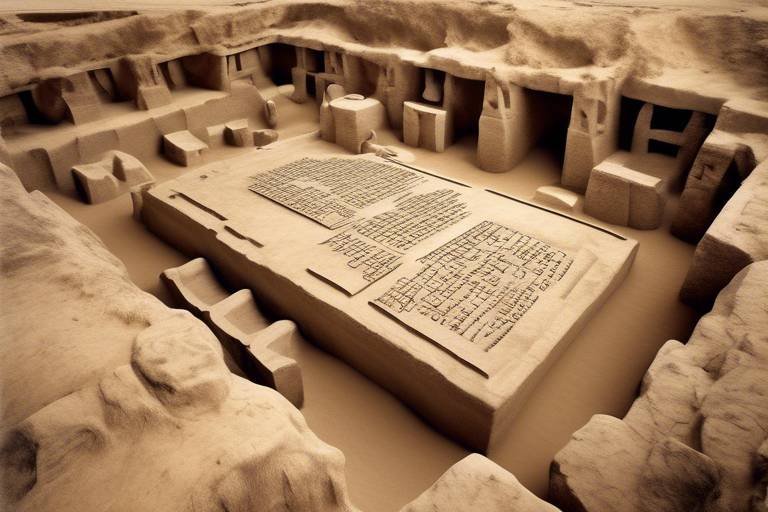Women's Role in Indigenous Archaeology
Women have played a significant but often overlooked role in indigenous archaeology. Their contributions span across various aspects of archaeological practices, from research to community engagement and leadership. Women researchers, community members, and leaders have been instrumental in preserving, interpreting, and promoting indigenous cultural heritage through their dedicated work and passion.

Challenges Faced by Women
Women have played a significant but often overlooked role in indigenous archaeology. This article explores the contributions of women researchers, community members, and leaders in preserving, interpreting, and promoting indigenous cultural heritage through archaeological practices.
Female archaeologists face unique challenges in the field, including gender bias, limited opportunities for leadership roles, and balancing fieldwork with family responsibilities. Overcoming these obstacles is crucial for promoting diversity and inclusivity in indigenous archaeology.
Gender bias remains a prevalent issue in the field of archaeology, with women often encountering stereotypes and discrimination that hinder their professional advancement. Limited access to leadership positions and decision-making roles further marginalize women in the discipline, perpetuating a lack of diverse perspectives and voices in archaeological research.
Balancing fieldwork demands with family responsibilities poses a significant challenge for many women archaeologists. Juggling excavation projects, research activities, and academic commitments while managing household duties and caregiving responsibilities requires exceptional organizational skills and support systems to maintain work-life balance.
Despite these challenges, women in indigenous archaeology continue to break barriers, challenge stereotypes, and pave the way for future generations of female researchers and leaders. By advocating for gender equality, fostering supportive networks, and promoting inclusive practices, women are driving positive change in the field and reshaping the narrative of indigenous history.
Engaging in archaeological research empowers indigenous women to reclaim their heritage, challenge stereotypes, and contribute to the preservation of cultural knowledge. By actively participating in excavations and research projects, women play a vital role in shaping the narrative of indigenous history. Collaboration with indigenous communities is essential in conducting respectful and ethical archaeological research. Women often serve as bridges between researchers and community members, facilitating dialogue, ensuring cultural sensitivity, and promoting community engagement in heritage preservation efforts. Indigenous women are at the forefront of cultural revitalization efforts, using archaeological findings to reconnect with ancestral traditions, languages, and practices. Their work not only preserves the past but also shapes the future of indigenous communities by fostering a sense of identity and pride. Many indigenous women in archaeology take on leadership roles within academic institutions, cultural organizations, and advocacy groups. Through their expertise and advocacy, they advocate for indigenous rights, representation, and the decolonization of archaeological practices. Recognizing the intersectionality of identities, including gender, race, and ethnicity, is crucial in promoting diversity and inclusivity in indigenous archaeology. Women from diverse backgrounds bring unique perspectives and experiences that enrich archaeological research and interpretation. Educational programs and mentorship opportunities play a key role in supporting women's participation in indigenous archaeology. By providing training, resources, and networking opportunities, these initiatives empower women to pursue careers in archaeology and contribute to the field's growth and diversity.
Empowerment Through Research
Women have played a significant but often overlooked role in indigenous archaeology. This article explores the contributions of women researchers, community members, and leaders in preserving, interpreting, and promoting indigenous cultural heritage through archaeological practices.
Female archaeologists face unique challenges in the field, including gender bias, limited opportunities for leadership roles, and balancing fieldwork with family responsibilities. Overcoming these obstacles is crucial for promoting diversity and inclusivity in indigenous archaeology.
Engaging in archaeological research empowers indigenous women to reclaim their heritage, challenge stereotypes, and contribute to the preservation of cultural knowledge. By actively participating in excavations and research projects, women play a vital role in shaping the narrative of indigenous history.
Collaboration with indigenous communities is essential in conducting respectful and ethical archaeological research. Women often serve as bridges between researchers and community members, facilitating dialogue, ensuring cultural sensitivity, and promoting community engagement in heritage preservation efforts.
Indigenous women are at the forefront of cultural revitalization efforts, using archaeological findings to reconnect with ancestral traditions, languages, and practices. Their work not only preserves the past but also shapes the future of indigenous communities by fostering a sense of identity and pride.
Many indigenous women in archaeology take on leadership roles within academic institutions, cultural organizations, and advocacy groups. Through their expertise and advocacy, they advocate for indigenous rights, representation, and the decolonization of archaeological practices.
Recognizing the intersectionality of identities, including gender, race, and ethnicity, is crucial in promoting diversity and inclusivity in indigenous archaeology. Women from diverse backgrounds bring unique perspectives and experiences that enrich archaeological research and interpretation.
Educational programs and mentorship opportunities play a key role in supporting women's participation in indigenous archaeology. By providing training, resources, and networking opportunities, these initiatives empower women to pursue careers in archaeology and contribute to the field's growth and diversity.
Stay tuned for answers to common questions about women's roles in indigenous archaeology!

Community Collaboration
Women have played a significant but often overlooked role in indigenous archaeology. This article explores the contributions of women researchers, community members, and leaders in preserving, interpreting, and promoting indigenous cultural heritage through archaeological practices.
Community collaboration is a cornerstone of respectful and ethical archaeological research. In the field of indigenous archaeology, women often serve as vital bridges between researchers and community members. Their role is multifaceted, encompassing facilitation of dialogue, ensuring cultural sensitivity, and promoting community engagement in heritage preservation efforts.

Promoting Cultural Revitalization
Women have played a significant but often overlooked role in indigenous archaeology. This article explores the contributions of women researchers, community members, and leaders in preserving, interpreting, and promoting indigenous cultural heritage through archaeological practices.
Female archaeologists face unique challenges in the field, including gender bias, limited opportunities for leadership roles, and balancing fieldwork with family responsibilities. Overcoming these obstacles is crucial for promoting diversity and inclusivity in indigenous archaeology.
Engaging in archaeological research empowers indigenous women to reclaim their heritage, challenge stereotypes, and contribute to the preservation of cultural knowledge. By actively participating in excavations and research projects, women play a vital role in shaping the narrative of indigenous history.
Collaboration with indigenous communities is essential in conducting respectful and ethical archaeological research. Women often serve as bridges between researchers and community members, facilitating dialogue, ensuring cultural sensitivity, and promoting community engagement in heritage preservation efforts.
Indigenous women are at the forefront of cultural revitalization efforts, using archaeological findings to reconnect with ancestral traditions, languages, and practices. Their work not only preserves the past but also shapes the future of indigenous communities by fostering a sense of identity and pride.
Many indigenous women in archaeology take on leadership roles within academic institutions, cultural organizations, and advocacy groups. Through their expertise and advocacy, they advocate for indigenous rights, representation, and the decolonization of archaeological practices.
Recognizing the intersectionality of identities, including gender, race, and ethnicity, is crucial in promoting diversity and inclusivity in indigenous archaeology. Women from diverse backgrounds bring unique perspectives and experiences that enrich archaeological research and interpretation.
Educational programs and mentorship opportunities play a key role in supporting women's participation in indigenous archaeology. By providing training, resources, and networking opportunities, these initiatives empower women to pursue careers in archaeology and contribute to the field's growth and diversity.

Leadership and Advocacy
Many indigenous women in archaeology are not only researchers but also leaders and advocates for their communities. They play a pivotal role in shaping the direction of academic institutions, cultural organizations, and advocacy groups, advocating for indigenous rights, representation, and the decolonization of archaeological practices. Through their expertise and dedication, these women are at the forefront of promoting inclusivity, diversity, and ethical practices within the field.
Leadership in indigenous archaeology goes beyond academic achievements; it involves active engagement with community members, policymakers, and the public to ensure that indigenous voices are heard and respected. Indigenous women often navigate complex social and political landscapes to advocate for the preservation of cultural heritage, the recognition of indigenous knowledge systems, and the empowerment of future generations.
Advocacy is a central component of the work done by indigenous women in archaeology. They strive to challenge stereotypes, combat discrimination, and address systemic inequalities within the field. By speaking out against injustices and promoting positive change, these women pave the way for a more inclusive and equitable future for indigenous archaeology.

Intersectionality and Diversity
Recognizing the intersectionality of identities is crucial in promoting diversity and inclusivity in indigenous archaeology. Women from diverse backgrounds bring unique perspectives and experiences that enrich archaeological research and interpretation. By acknowledging the complex interplay of gender, race, and ethnicity, researchers can better understand the multifaceted nature of indigenous cultures and histories.

Educational Initiatives
Women have played a significant but often overlooked role in indigenous archaeology. This article explores the contributions of women researchers, community members, and leaders in preserving, interpreting, and promoting indigenous cultural heritage through archaeological practices.
Female archaeologists face unique challenges in the field, including gender bias, limited opportunities for leadership roles, and balancing fieldwork with family responsibilities. Overcoming these obstacles is crucial for promoting diversity and inclusivity in indigenous archaeology.
Engaging in archaeological research empowers indigenous women to reclaim their heritage, challenge stereotypes, and contribute to the preservation of cultural knowledge. By actively participating in excavations and research projects, women play a vital role in shaping the narrative of indigenous history.
Collaboration with indigenous communities is essential in conducting respectful and ethical archaeological research. Women often serve as bridges between researchers and community members, facilitating dialogue, ensuring cultural sensitivity, and promoting community engagement in heritage preservation efforts.
Indigenous women are at the forefront of cultural revitalization efforts, using archaeological findings to reconnect with ancestral traditions, languages, and practices. Their work not only preserves the past but also shapes the future of indigenous communities by fostering a sense of identity and pride.
Many indigenous women in archaeology take on leadership roles within academic institutions, cultural organizations, and advocacy groups. Through their expertise and advocacy, they advocate for indigenous rights, representation, and the decolonization of archaeological practices.
Recognizing the intersectionality of identities, including gender, race, and ethnicity, is crucial in promoting diversity and inclusivity in indigenous archaeology. Women from diverse backgrounds bring unique perspectives and experiences that enrich archaeological research and interpretation.
Educational programs and mentorship opportunities play a key role in supporting women's participation in indigenous archaeology. By providing training, resources, and networking opportunities, these initiatives empower women to pursue careers in archaeology and contribute to the field's growth and diversity.
Frequently Asked Questions
- What role do women play in indigenous archaeology?
Women play a significant role in indigenous archaeology as researchers, community members, and leaders. They contribute to preserving, interpreting, and promoting indigenous cultural heritage through archaeological practices.
- What challenges do female archaeologists face?
Female archaeologists face unique challenges such as gender bias, limited leadership opportunities, and balancing fieldwork with family responsibilities. Overcoming these obstacles is crucial for promoting diversity in the field.
- How does engaging in archaeological research empower indigenous women?
Engaging in archaeological research empowers indigenous women to reclaim their heritage, challenge stereotypes, and contribute to the preservation of cultural knowledge. Actively participating in excavations helps shape the narrative of indigenous history.
- Why is community collaboration important in indigenous archaeology?
Collaboration with indigenous communities is essential for conducting respectful and ethical research. Women often act as bridges between researchers and community members, ensuring cultural sensitivity and promoting community engagement in heritage preservation.
- How do indigenous women contribute to cultural revitalization efforts?
Indigenous women use archaeological findings to reconnect with ancestral traditions, languages, and practices, leading cultural revitalization efforts. Their work preserves the past and shapes the future of indigenous communities by fostering identity and pride.
- What is the significance of leadership roles for indigenous women in archaeology?
Many indigenous women take on leadership roles in academic institutions, cultural organizations, and advocacy groups. Through their expertise and advocacy, they promote indigenous rights, representation, and the decolonization of archaeological practices.
- Why is intersectionality and diversity important in indigenous archaeology?
Recognizing the intersectionality of identities, including gender, race, and ethnicity, is crucial for promoting diversity and inclusivity in indigenous archaeology. Women from diverse backgrounds bring unique perspectives that enrich research and interpretation.
- How do educational initiatives support women's participation in indigenous archaeology?
Educational programs and mentorship opportunities play a key role in supporting women's involvement in archaeology. By providing training, resources, and networking, these initiatives empower women to pursue careers in the field and contribute to its growth and diversity.






